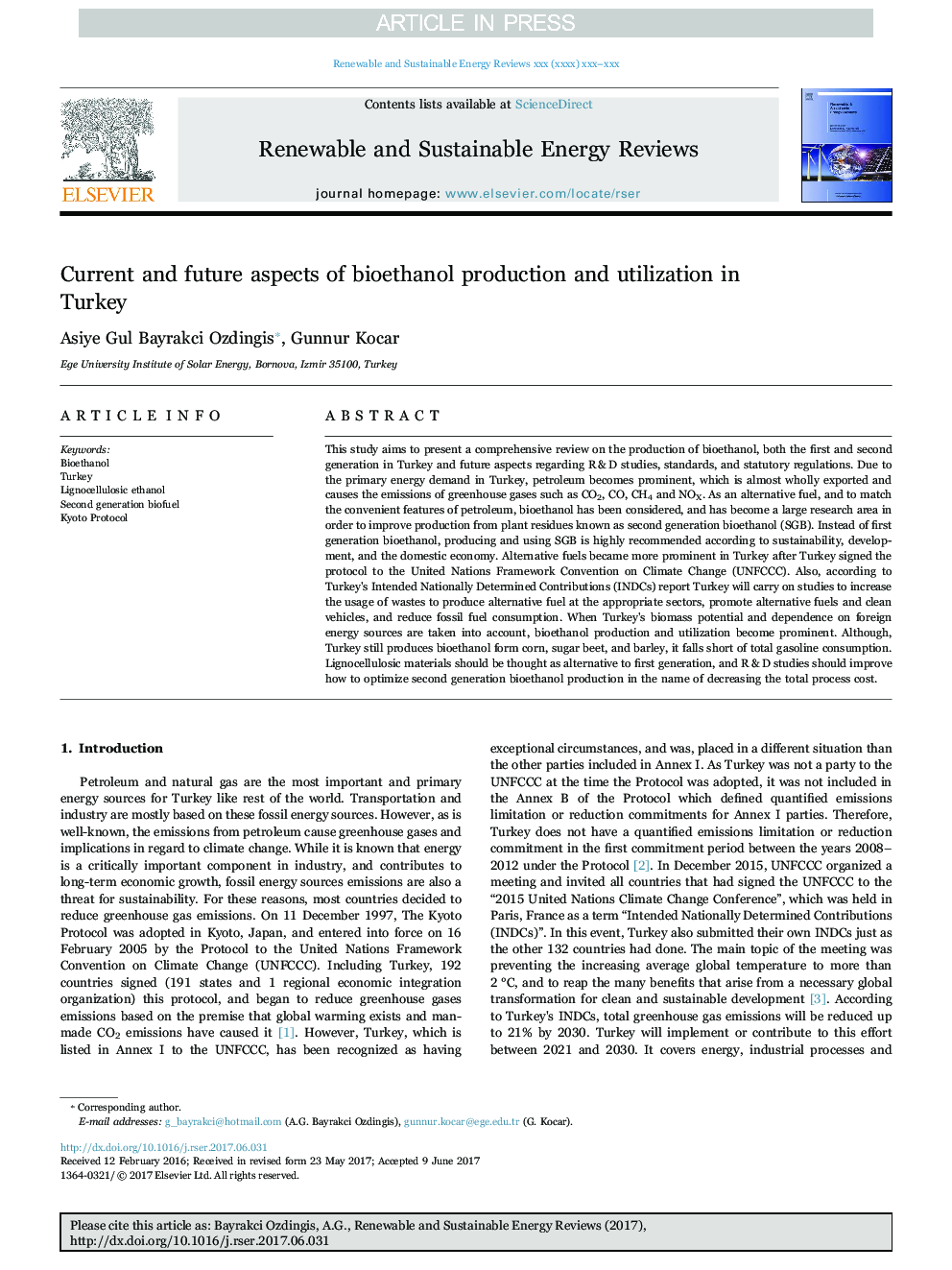| Article ID | Journal | Published Year | Pages | File Type |
|---|---|---|---|---|
| 8112273 | Renewable and Sustainable Energy Reviews | 2018 | 8 Pages |
Abstract
This study aims to present a comprehensive review on the production of bioethanol, both the first and second generation in Turkey and future aspects regarding R&D studies, standards, and statutory regulations. Due to the primary energy demand in Turkey, petroleum becomes prominent, which is almost wholly exported and causes the emissions of greenhouse gases such as CO2, CO, CH4 and NOX. As an alternative fuel, and to match the convenient features of petroleum, bioethanol has been considered, and has become a large research area in order to improve production from plant residues known as second generation bioethanol (SGB). Instead of first generation bioethanol, producing and using SGB is highly recommended according to sustainability, development, and the domestic economy. Alternative fuels became more prominent in Turkey after Turkey signed the protocol to the United Nations Framework Convention on Climate Change (UNFCCC). Also, according to Turkey's Intended Nationally Determined Contributions (INDCs) report Turkey will carry on studies to increase the usage of wastes to produce alternative fuel at the appropriate sectors, promote alternative fuels and clean vehicles, and reduce fossil fuel consumption. When Turkey's biomass potential and dependence on foreign energy sources are taken into account, bioethanol production and utilization become prominent. Although, Turkey still produces bioethanol form corn, sugar beet, and barley, it falls short of total gasoline consumption. Lignocellulosic materials should be thought as alternative to first generation, and R&D studies should improve how to optimize second generation bioethanol production in the name of decreasing the total process cost.
Related Topics
Physical Sciences and Engineering
Energy
Renewable Energy, Sustainability and the Environment
Authors
Asiye Gul Bayrakci Ozdingis, Gunnur Kocar,
